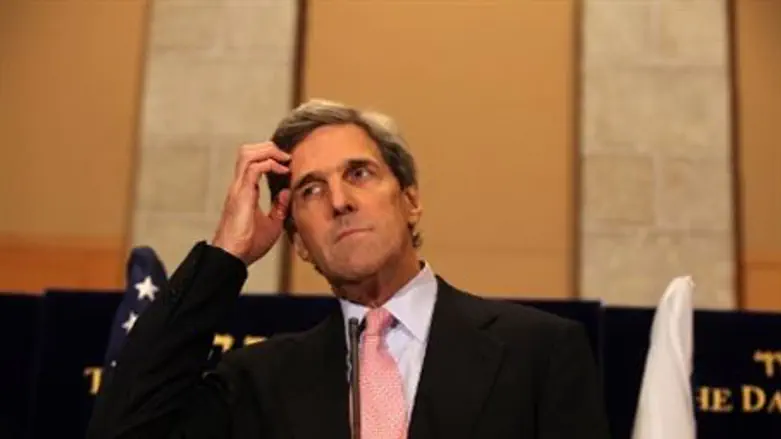
In an impressive display of 20/20 hindsight, US Senator John Kerry, chairman of the Senate Foreign Relations committee, has called for a "readjustment" of US foreign policy in the Middle East in the wake of pervasive regional upheaval creating what he terms "new realities" in the region, the Associated Press reports.
During a speech at the Carnegie Endowment for International Peace, Kerry told attendees: "Too often over the past decade we have seen regimes in the region chiefly as bulwarks in the fight against terrorism, while looking away from abuses we find unconscionable. We can no longer view the Middle East solely through the lens of September 11. Now, we must view it through the lens of 2011."
Kerry, whose voting record on US foreign policy in the middle east has consistently reinforced the long standing status quo, continued, "Too often over the past decade our foreign policy has been driven by our addiction to foreign oil. Democracy and human rights have been overshadowed."
Terming sudden regime changes and ongoing uprisings in the region, "an enormous challenge both for the people of the region and for America's relationship with them," Kerry equated the region's troubles to those created by the collapse of the former Soviet Union. He informed attendees that he and fellow senators John McCain and Joseph Lieberman would propose legislation to dedicate financial aid to build democracies and free markets throughout the region.
Taking what appears to be Saudi Arabia's dollars for quiet lead, Kerry cited the fall of the Berlin Wall and legislation signed into law by then-president George H.W. Bush authorizing close to $1 billion in aid to Poland, saying, "I believe a similar program can be invaluable now."
That program ultimately expanded to include other Warsaw Pact countries and beyond costing $9 billion between 1990 and 2009, and is still active in six Baltic states. "It is particularly important that we get this right in Egypt," Kerry said. "What happens there will affect not only 80 million Egyptians, but the entire Middle East."
Kerry did not note the United States has already been providing Egypt with foreign aid for decades with annual aid approaching $1.5 billion dollars per annum for the last decade - almost all of which has been military aid. Nor did Kerry address how the region's fundamentally different culture and values compared to those of former Warsaw pact nations would affect US attempts to purchase the region's affections.
The United States, whose economy continues to feel the malaise of ongoing recession, has seen an increasing political zeitgeist supporting cuts in government spending, especially foreign aid dollars.
Kerry plans to travel to the Middle East "in the coming days."